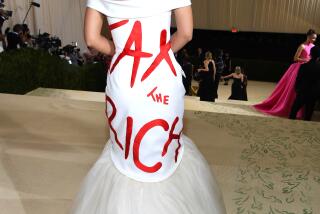Greeks reject the rule of Europe’s gods of austerity
In the mythology of ancient Greece, a host of vain, impetuous, vindictive gods ruled over human affairs and were quick to punish any mortal who dared to defy their whims. Modern Greeks seem to believe not much has changed, except the gods who hold sway in their lives are not Zeus, Ares and Aphrodite, but the European Central Bank, the European Commission and the International Monetary Fund.
For five years, that so-called “troika” of powers has imposed on Greece a strict economic austerity program that has produced a 25% drop in the country’s GDP and unemployment among young Greeks that exceeds 60%. In a recent essay, Nobel-winning economist Joseph Stiglitz said, “I can think of no depression, ever, that has been so deliberate and had such catastrophic consequences. … It is startling that the troika has refused to accept responsibility for any of this or to admit how bad its forecasts and models have been.”
Instead of questioning the wisdom of their harsh regimen, the three creditor institutions — with the strong support of German Chancellor Angela Merkel and large private banks — have been pushing the Greeks to do even more to tighten their belts and repay their debts.
Like all humans, the Greeks are not without flaw. The overly generous welfare policies of past Greek governments combined with the tax-avoiding habits of their wealthy class got them into an economic predicament that required rescue from European bankers and international institutions. However, having now significantly reduced pensions, cut government employment by 25% and turned their primary deficit into surplus at a huge cost to their people, the Greeks may justifiably ask, “Haven’t we done enough?”
On Sunday, more than 60% of them answered that question by voting “no” on a referendum that would have approved a new round of austerity measures proposed by the gods of the financial world. They said no, even though Greek banks have nearly run out of money and there is a real possibility that Greece could be tossed out of the Eurozone, Europe’s 19-member common currency system, and possibly out of the European Union.
Several factors drove the rejection: anger at German domination, a dubious belief that a better deal can be made, an impulse to strike back at the bankers and technocrats they blame for the impoverishment of their nation and a sense that the uncertainty of life without the euro might be better than the certainty that perpetual austerity will do nothing to make life better for Greeks.
The European politicians and bureaucrats who expect the Greeks to bow to their demands are preaching prudence and responsibility, even as they cling to a rigid economic fanaticism that offers Greece nothing but more decades of misery. Economists in every corner of the world have questioned the European leaders’ obsession with austerity and one of them, Nobel laureate Paul Krugman, has equated the policy toward Greece with “extracting blood from a stone.”
Earlier this year in a CNN interview, President Obama said, “You cannot keep on squeezing countries that are in the midst of a depression. … At some point, there has to be a growth strategy in order for them to pay off their debts to eliminate some of their deficits.”
The European fans of austerity seem as foolhardy as Republican governors like Scott Walker and Sam Brownback, who subscribe to the fairy tale that tax cuts and reductions in government services will inevitably boost their state’s economy. In Wisconsin and Kansas, respectively, where the economies have tanked, Walker and Brownback have been conclusively proved wrong.
In the American system, such foolishness can be mitigated because the 50 states are part of a fully integrated national economy and because the democratic system can, eventually, deal with those who fail by tossing them out of office.
Europe, though, is different. Each member country in the Eurozone has far more latitude to sink or swim on its own, but none has control over the currency that is the heart of economic activity. The gods in Brussels and Frankfurt handle that, and they do not stand for election.
Politically, the masters of Europe’s economic system are immortals. It is no surprise they disdain the little people below who, in their weariness and misery, might have the temerity to say “no!”
More to Read
A cure for the common opinion
Get thought-provoking perspectives with our weekly newsletter.
You may occasionally receive promotional content from the Los Angeles Times.







